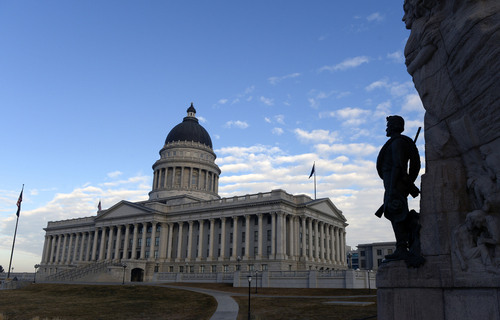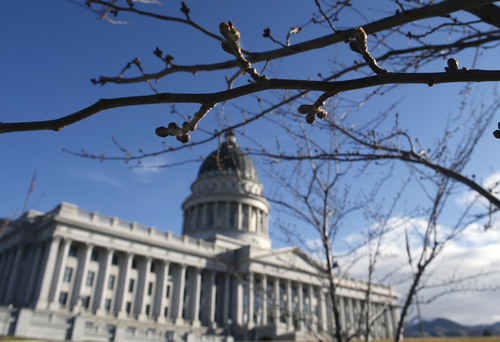This is an archived article that was published on sltrib.com in 2014, and information in the article may be outdated. It is provided only for personal research purposes and may not be reprinted.
Utah could offer the nation's first presidential primary in 2016.
The House voted 58-14 Monday to pass HB410, sending it to the Senate. The bill would allow Utah to hold a presidential primary a week before any other state — conducted solely by online voting.
However, the early date could bring punishment from national political parties, which have rules to protect New Hampshire as the country's first primary and Iowa as the first caucus.
For example, the Republican Party would cut Utah's current delegation of 40 to just nine if it elects to go first. The Democratic Party has not adopted rules yet, but is expected to follow suit.
"We've created a system that is blatantly discriminatory. It creates second-class states," said Rep. Jon Cox, R-Ephraim, sponsor of the bill.
He said Utah is far larger than New Hampshire, but no one pays attention to it in the presidential primary process. "Our influence is minimal, if at all," he said.
"This isn't just an issue of presidential candidates not paying attention to us, it's everyone else," Cox added, noting that up-and-coming politicians often travel to New Hampshire and Iowa to become involved in even small county elections because of those states' influence on presidential politics.
But Utah is ignored.
Even if Utah lost delegates for going early, Cox said those representatives might be more influential in the ultimate outcome. New Hampshire only has 12 Republican delegates, he noted, contending the current system make them more important than Utah's 40 in winnowing the field and choosing the ultimate winner.
Cox said his bill requires the lieutenant governor's office to develop a system over the next year to conduct an election that uses online voting that "is safe, secure and confidential" before any final approval and funding is given.
He wants the primary conducted online to give officials flexibility about its timing and to allow them to move it earlier if other states try to spring ahead. The state already allows members of the military to vote online, Cox pointed out.
In the past, when other states have tried to move earlier than Iowa and New Hampshire, candidates stayed away. They were afraid of offending early-state voters who see it as their right to start the selection process.
Former Utah Gov. Jon Huntsman, for example, avoided Nevada's early primary during the 2012 race as he campaigned for months in New Hampshire.





